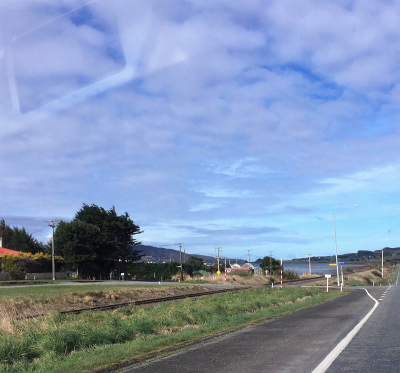
Since the beginning of time, humanity has always yearned to be free. Despite this common sentiment, not everyone in history has been afforded this God-given right. In fact, there are individuals, even entire communities, who have been deprived of freedom, and have been forced to fight for certain rights that we in modern society now take for granted.
An uphill battle
The film, Son of the South, presides over this very issue, set against the backdrop of the Civil Rights Movement of the 1960s. Though one might think that the hero of the story would be Rosa Parks or Dr. Ralph Abernathy, it is actually someone who you might least expect - a Caucasian college senior by the name of Bob Zellner who always happens to be in the midst of trouble.
Interestingly, Bob finds himself rebelling against the wishes of his grandfather, and the college he attends; eventually getting expelled for his antics and despised by his friends and close confidants.
However, his crime is not what one might easily attribute to an individual of his standing, in fact, it is due to his family background, and his own personal values which prevent him from being on the side of his loved ones. It is because Bob’s family actually has a history of being a part of the KKK.
Finding the higher ground
I recall reminiscing on the Civil Rights movement during my high school days and wondering what it would have been like to walk in the shoes of those who were infamously known as the “Freedom Riders”. These brave souls rode in buses across the Deep South in America and were abused, ridiculed, and even bore beatings and bruises until they finally got what they so desperately needed; their right to freedom.
A few years ago, I had the privilege of interviewing one of the original Freedom Riders, a gentleman by the name of Jim Zwerg, who was actually a Caucasian man who was brutally beaten for upholding the cause of the African-American sit-ins. As I heard his story, he always pointed to the fact that, despite later accolades and fame, he knew that the real heroes were those who shouldered the everyday burden of being rejected, and who ultimately convinced him to join the fight for freedom.
Gain through loss
The same can be said of Bob Zellner, who was actually inspired by Jim Zwerg’s courage and countless others in the Civil Rights Movement to take a stand against segregation in the South.
Despite being from a Caucasian family, he realised his capacity for change, as shown in the film when his father, himself a Klansman, had journeyed abroad and realised his own prejudices against African-Americans, eventually giving up his ‘family tradition’ and instead, becoming a minister of a Methodist church. Bob knew that he had to make a choice by walking the walk, not just talking the talk; literally.
In a pivotal scene in the film, Bob walks shoulder to shoulder with his African-American companions across a bridge during a peaceful protest, only shortly thereafter to be pinned down and punched several times before being dragged to a nearby field to be hanged.
The ringleader who almost succeeds in convincing the mob to go ahead with the lynching turns out to be a former college roommate who fails to share Bob’s convictions and goes against his better judgement to stop Bob in his tracks.
Bob realises a key lesson that we all also must face - that knowing your right to freedom is a choice that others must also have the right to choose. The defining moment in Bob’s life was understanding that our differences are never meant to divide us, but rather, are supposed to unite us.
For Bob, this meant disregarding his own dreams for the future to ensure that the dream of freedom could be achieved together with others who had not yet been made free.
Realising what’s right
Bob’s realisation reminds me of the Apostle Paul’s reality in which he also realised that his own personal ambitions could never match the amazing future God has already planned for him.
“But whatever were gains to me, I now consider loss for the sake of Christ. What is more, I consider everything a loss because of the surpassing worth of knowing Christ Jesus my Lord, for whose sake I have lost all things. I consider them garbage, that I may gain Christ” - Philippians 3:7-8 (NIV)
In essence, he knew that his own achievements were actually a stumbling block to his personal growth, and were preventing him from being what he was meant to be in God’s eyes.
For each of us, we all have our own lessons that we learn from in life, but we should be able to stop and consider that whatever we may have missed out on in the past does not define our legacy that we leave behind.
Like Bob, our own struggles can ultimately be the path to our collective freedom.

Joseph Kolapudi's previous articles may be viewed at http://www.pressserviceinternational.org/joseph-kolapudi.html